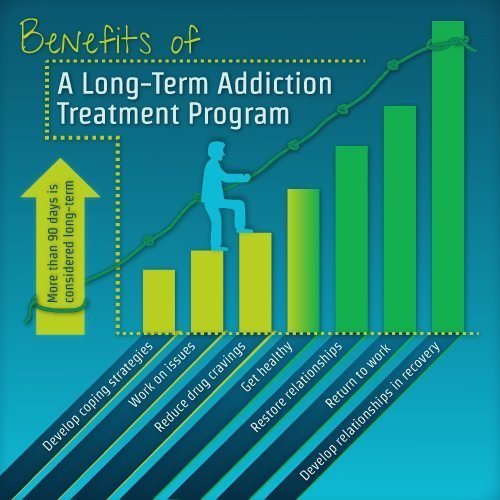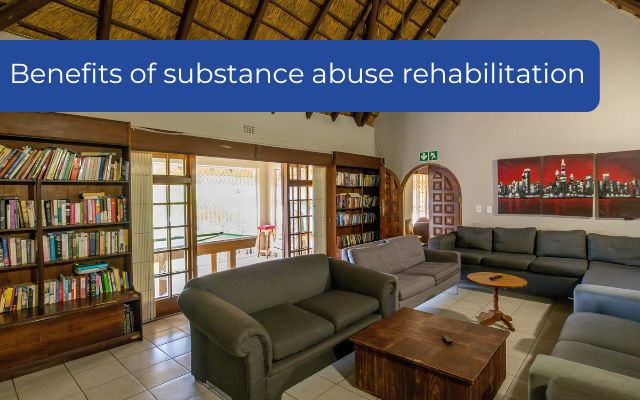Narconon Africa Fundamentals Explained
Table of ContentsSee This Report on Narconon AfricaThe Buzz on Narconon AfricaWhat Does Narconon Africa Mean?The 30-Second Trick For Narconon AfricaFascination About Narconon AfricaThe 10-Minute Rule for Narconon AfricaThe smart Trick of Narconon Africa That Nobody is Talking About
In a collection of papers with Manudeep Bhuller and Katrine V. Lken, we conquer these information difficulties and the nonrandomness of jail time, offering brand-new understandings right into exactly how incarceration affects relapse, employment, children, and criminal networks - Effective Alcoholic treatment. Number 1 Our work research studies the effects of incarceration in Norway, a setup with 2 essential benefitsWe can even more link this details to other household members, including kids and siblings. We have info on co-offending that enables us to map out criminal networks for observed criminal offenses. Second, we can take advantage of the arbitrary task of criminal cases to judges who differ in their propensities to send defendants to jail.
Some judges send offenders to prison at a high rate, while others are extra forgiving. We determine a court's stringency as the typical imprisonment price for all various other cases a court deals with, after managing for court and year set results, which is the degree of random project. This quasi-random job of court stringency can be used as a tool for incarceration, as it strongly anticipates the court's choice in the existing case, yet is uncorrelated with various other instance attributes both by style and empirically.
A Biased View of Narconon Africa
Characteristics of detainees, including demographics and criminal offense categories, are extensively comparable in Norway and other countries, consisting of the United States, with the exceptions that the US murder price is a lot higher, and race plays a larger function there too. What stands out as various, specifically contrasted with the USA, is the jail system.
Number 2In Norway, the typical time invested in jail is a little over 6 months, which is comparable to most other Western European countries. This contrasts with typical US jail time of almost three years, which is in huge component the factor the United States is an outlier in its incarceration rate contrasted with the remainder of the world [Figure 1]
Excitement About Narconon Africa
This provides a lot more splitting up in between small and solidified lawbreakers than exists in the USA. There is no congestion in Norwegian jails and much better personal safety, with each prisoner being designated to their very own cell and a greater inmate-to-staff proportion than in the United States (https://pagespeed.web.dev/analysis/https-www-narcononafrica-org-za/xqn02ltn12?form_factor=mobile). Jails in Norway likewise use well-funded education and learning, medication treatment, psychological health and wellness, and work training programs
Our research on the impacts of imprisonment on the wrongdoer, using the arbitrary task of courts as an instrument, yields 3 essential searchings for. First, imprisonment inhibits better criminal behavior. We find that incarceration lowers the possibility that an individual will certainly reoffend within five years by 27 percent points and check my source lowers the equivalent variety of criminal costs per individual by 10 costs.
Narconon Africa Fundamentals Explained
We locate large reductions in reoffending likelihoods and cumulative charged criminal offenses even after defendants are launched from prison. Our 2nd result is that predisposition as a result of option on unobservable individual features, if disregarded, causes the erroneous final thought that time spent in jail is criminogenic. If we merely compare criminal accuseds imprisoned versus those not sentenced, we discover favorable organizations in between incarceration and subsequent crime.
This stands in contrast to our analysis based on the arbitrary assignment of judges, which locates an opposite-signed outcome. Third, the decrease in crime is driven by people that were not working before incarceration. Amongst these people, jail time increases participation in programs guided at boosting employability and lowering relapse, and this eventually raises employment and earnings while discouraging criminal habits.

Imprisonment causes a 34 percentage factor increase in engagement in task training programs for the previously nonemployed, and within five years their employment rate increases by 40 percent factors. At the very same time, the possibility of reoffending within 5 years is reduced by 46 percentage factors, and there is a decline of 22 in the ordinary variety of criminal charges.
The Greatest Guide To Narconon Africa

A plausible explanation for the distinction is that Norway's prison system differs substantially, both in regards to prison-term size and jail conditions, from the United States jail system. While recognizing the results of incarceration on the offender is a vital initial step, catching spillover results is also crucial for reviewing criminal justice plan and creating efficient jail systems.
An Unbiased View of Narconon Africa

Ordinary the very least squares estimates disclose that kids of incarcerated daddies are 1 percentage factor more probable to be charged with a crime, about a mean of 13 percent, and reveal no effect on institution qualities. Utilizing our judge stringency tool, we locate no statistical proof that a daddy's imprisonment influences a kid's own criminal activity or college qualities, however we are not able to eliminate modest-sized results.
More About Narconon Africa
We define criminal teams based upon network web links to prior criminal cases. Our evaluation returns 3 main findings. Initially, when a criminal network participant is incarcerated, their peers' probability of being billed with a future criminal activity reduces by 51 percentage factors over the following 4 years. Likewise, having an older brother put behind bars decreases the chance his more youthful bro will be billed with a criminal offense by 32 percentage points over the following four years.